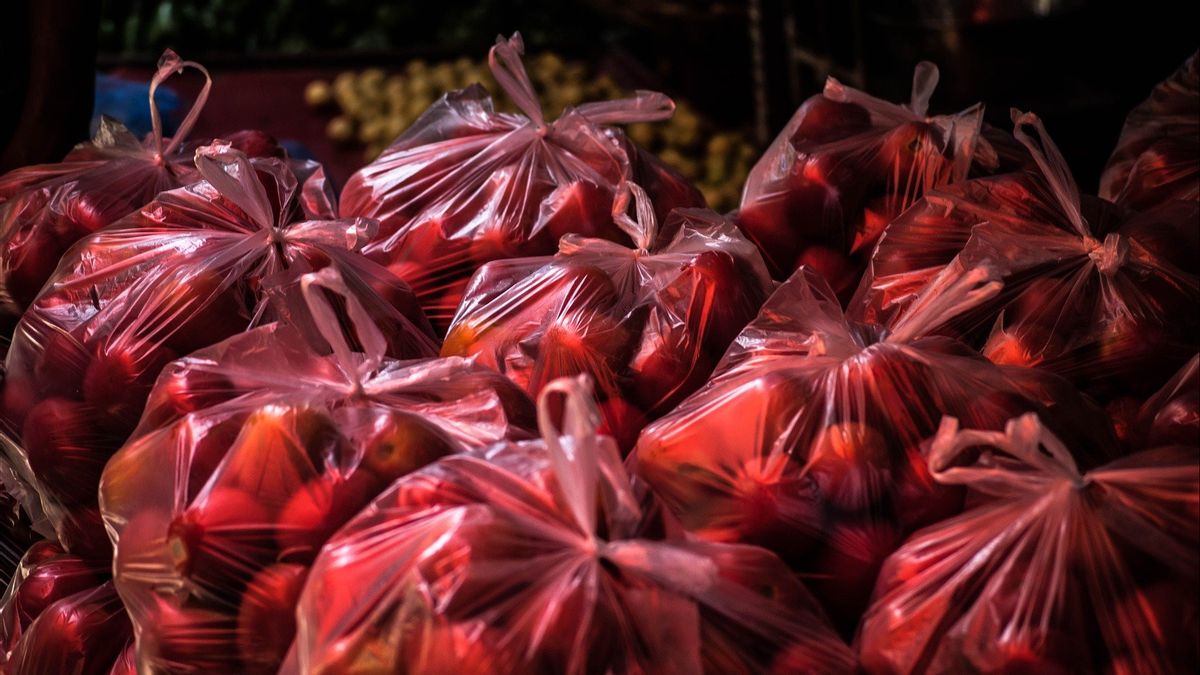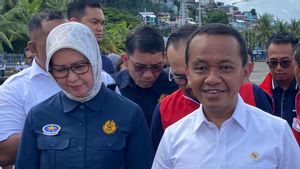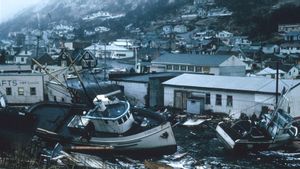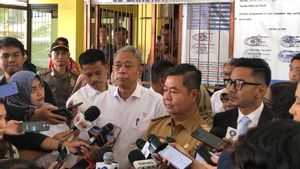JAKARTA - A ban on the use of single-use plastic bags has come into effect in Jakarta on July 1. The DKI Provincial Government claims to have carried out the socialization of the plastic bag ban and the obligation to use environmentally friendly shopping bags massively for the past 6 months.
However, it turns out that a number of provisions stipulated in DKI Governor Regulation Number 142 of 2019 have been complained of by traders and managers of shopping places.
Chairman of the Legal and Advocacy Division of the Indonesian Market Traders Association (IKAPPI) Miftahudin considers that, until now, a number of traders have not received more detailed information regarding the socialization of the DKI Provincial Government regarding the contents of Pergub 142/2019.
Market traders, said Miftahudin, also do not understand the strong reason that they should replace the use of plastic bags with environmentally friendly shopping bags.
"We encourage the provincial government to involve groups or market block leaders to help socialize the members of the block. This is much more effective," Miftahudin told reporters, Thursday, July 2.
Miftahudin said market traders were also confused when they had to wrap their wet wares. This is because food or wet items cannot be put in a bag made of paper or cloth, and cannot be put together with other items.
Therefore, Miftahudin asked the DKI Jakarta Provincial Government to provide an exception for wet food packaging, so that there is an alternative grocery bag solution that suits their needs.
"For the time being, we ask the provincial government to continue to allow traders to still use small plastics for some wet commodities that do not allow them to be combined with grocery bags," he said.
Separately, the Chairperson of the DKI Indonesia Shopping Center Management Association (APPBI) Ellen Hidayat also complained about several things, even though most shops in middle and upper-middle shopping centers have used various shopping bags made of paper and recycled materials.
"However, for SMEs who are also at the Trade Mall, increasing plastic bags to become environmentally friendly bags will be an additional selling cost at this time," said Ellen.
Not to mention, with the COVID-19 pandemic conditions, many food businesses have had to wrap food with more hygiene protection in shopping for delivery messages. When single-use plastics are banned, shops are confused about finding substitutes for hygienic food wrappers.
"Many questions arise from tenants who are confused about looking for substitute materials so that food products are still hygienic. We need clearer directions from the Environmental Service regarding this matter," said Ellen.
Ellen also complained about the application of the sanctions regulated in the DKI Governor Regulation Number 142/2019. The regulation states that shopping center managers will receive sanctions if a shop still uses single-use plastic bags.
In fact, shopping centers have the status of renting out places, not as business actors and not in direct contact with the use of plastic bags. However, sanctions are also given to shopping center managers, "he said.
The reason the DKI Provincial Government has made a ban on single-use plastic bagsThe discourse on banning plastic bags has been raised since January. This rule is applied after the DKI Pemprov has given 6 months. The goal is that all businesses and communities can prepare environmentally friendly bags. Bags that can be used repeatedly, such as bags made of cloth, pandanus, purun, polyester, paper, and dry leaves.
Head of the DKI Jakarta Environment Agency Andono Warih explained that the reason for the DKI Provincial Government to ban single-use plastics is because it is related to waste. Moreover, the garbage case is one of the classic problems in Jakarta, apart from flooding and congestion.
Based on data from the Department of LH, the waste pile at the end of 2019 reached 7,702 tons / day which entered the Bantargebang TPST, where 34 percent of the accumulated waste at Bantargebang TPST was plastic waste.
"This is because this type of plastic bag does not sell well for scavengers to collect, which can be recycled by the recycling industry. This type of waste takes tens to hundreds of years to naturally decompose," said Andono.
Andono does not want to continue the paid plastic bag program that was previously implemented by the Ministry of Environment and Forestry. This is because this policy cannot reduce the use of plastic bags.
"If it is single-use, it certainly does not meet the reusable principle which is designed to be used repeatedly. Thus, it does not answer the purpose of this policy, namely reducing waste at the source," he said.
The bad impact that occurs if plastic waste accumulates is disruption of water flow in the micro and connecting channels which will cause puddles. The splitting of plastics into microplastics with these chemicals, if they are scattered into the waters, can be consumed by microorganisms and other living things.
The English, Chinese, Japanese, Arabic, and French versions are automatically generated by the AI. So there may still be inaccuracies in translating, please always see Indonesian as our main language. (system supported by DigitalSiber.id)













